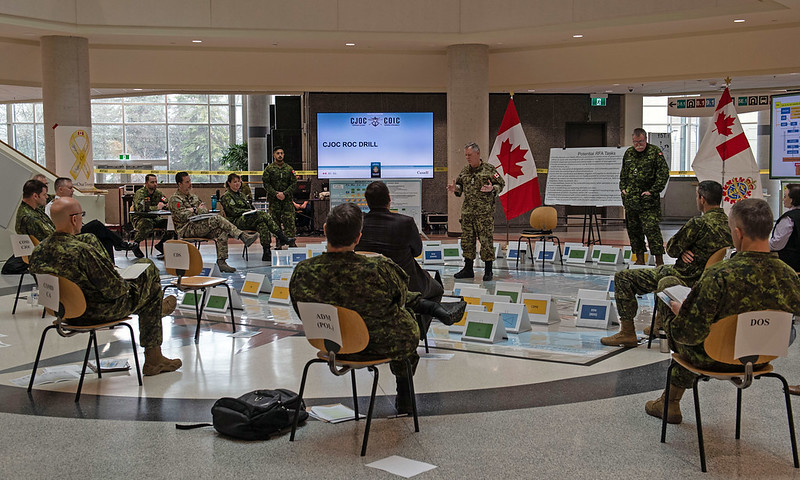In response to a recent request for assistance from Quebec, the Canadian Armed Forces (CAF) liaison and reconnaissance elements are being dispatched to the region starting today. They will help gather information to aid the CAF medical personnel and resources to support upcoming deployment to ease the ongoing situation in long-term care facilities (LTCF).
This process will help to determine the locations and the employment protocols for about 125 CAF members with health care training who will be deployed in the province starting tomorrow. Known as Augmented Civilian Care (ACC) Teams, these groups will be comprised of nursing officers, medical technicians and support personnel.
“Our Augmented Civilian Care teams are flexible, adaptable, and scalable, and I am confident their efforts will go a long way to help improve conditions in the facilities we are deployed to,” said Gen Jonathan Vance, Chief of the Defence Staff.
The ACC teams will work with local doctors and nurses to provide civilian patient management, including those in LTCF, help with coordinating nursing and logistical requirements, and assist with the delivery of essential protective equipment to those working in LTCFs.
Based on requests from the Government of Canada, the CAF works in partnership with other government departments and agencies to respond to emergencies in times of need. The most recent is Operation LASER, which was launched over a month ago by the CAF to support the whole of government response to COVID-19.

Photo: Master Corporal True-dee McCarthy, Canadian Forces Combat Camera
“We have worked closely with Public Safety Canada, Health Canada and the Government of Quebec to meet the urgent need for assistance in Quebec’s long-term care facilities,” said Harjit S.Sajjan, Minister of National Defence. “In these challenging times, the women and men who serve will do what they have always done, help Canadians in their time of need.”
Under Operation LASER, the CAF has already responded to two requests for assistance from the Government of Quebec. This includes the deployment of 80 Canadian Rangers to Nunavik, Northern Quebec, who are working closely with the Nunavik Regional Board of Health and Social Services to prepare triage points to facilitate the work of healthcare personnel. The other request resulted in the deployment of about another 80 Canadian Rangers to Basse-Côte-Nord, Eastern Quebec, to assist vulnerable people and support local physical distancing awareness programs.
